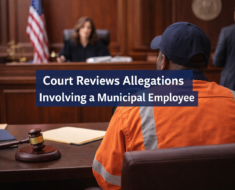It began as an ordinary flight—one of those busy weekday journeys where passengers shuffle aboard with headphones, travel pillows, and a desire to escape the crowded terminal as quickly as possible. No one expected that before takeoff, an incident would unfold that would test not only their patience but their humanity, shaking the very meaning of compassion in the modern world.

The Woman Who Didn’t Belong
She was visibly pregnant, with a faded jacket draped over her thin shoulders and a battered duffel bag clutched to her chest. To many, she looked out of place among business travelers in suits and families heading for vacations. Her shoes were worn, her hair uncombed, and her eyes darted nervously around the cabin.
Whispers started almost immediately. “How did she afford a ticket?” one passenger muttered. “She doesn’t smell right,” another complained, wrinkling her nose. Flight attendants exchanged uneasy glances as the murmurs grew louder. Within minutes, a businessman in the front row pressed the call button.
“She shouldn’t be here,” he insisted. “This is unsanitary. My children are on this flight.”
Soon more voices joined in, echoing variations of the same sentiment: She doesn’t belong.
The captain, alerted by the cabin crew, made a decision—one that seemed logical under pressure but would later haunt everyone on board. The pregnant woman was quietly asked to leave the aircraft.
Her face crumpled, a mix of humiliation and pain. “Please,” she whispered, one hand on her swollen belly. “I need to get to Denver. It’s… it’s important.”
But the decision was final. Security escorted her off the plane as passengers sighed with relief. Some even applauded. The flight attendants forced smiles and reassured everyone: “We’ll be taking off shortly.”
No one knew they had just made the worst mistake of their lives.
Moments Later – Chaos in the Sky
An hour into the flight, turbulence hit. At first, it was minor—a few jolts, the kind that rattle coffee cups but don’t cause panic. But then the shaking intensified. Overhead bins rattled violently, oxygen masks trembled, and the captain’s voice came over the intercom, tighter than before:
“Ladies and gentlemen, please remain seated. We’re experiencing unexpected turbulence.”
The flight attendants tried to stay calm, but fear flickered across their faces. Minutes later, an even more chilling announcement followed:
“We have a medical emergency. Is there a doctor on board?”
A man in his 60s had collapsed in row 12, clutching his chest. His wife screamed for help, and the crew rushed forward. Panic spread quickly—passengers cried, prayed, or tried to move out of the way.
But there was no doctor. Not on this flight. Not among the well-dressed professionals, the parents with children, or the frequent fliers tapping nervously on their phones.
The crew scrambled for the medical kit, but their efforts were clumsy. No one knew what to do. The man’s face turned pale, his breaths shallow. Every second mattered.
And that’s when the realization hit like ice water: the one person who might have saved him was no longer on the plane.
The Secret They Never Saw
Back at the airport, the pregnant woman had been quietly crying in the terminal when the overhead announcement blared: “Flight 472 to Denver, now departing.”
Her hands shook. She wasn’t just trying to get to Denver for herself. She was trying to get to a clinic where she had volunteered in the past—a clinic that had promised her a safe place to stay until her baby arrived. But beyond her own struggles, she carried a past that none of the passengers could have imagined.
She wasn’t just homeless. She wasn’t just pregnant.
She was once a combat medic in the military.
Years earlier, she had served overseas, saving countless lives under unimaginable conditions. She had treated gunshot wounds, stabilized trauma victims, and performed CPR in deserts and warzones where supplies were scarce. But after returning home, trauma and tragedy had dismantled her life piece by piece—job loss, medical bills, and the death of her partner. Homelessness followed, and with it, invisibility.
To the passengers on Flight 472, she was just a burden, someone unworthy of their space. But in truth, she carried skills that no one else on that plane possessed—skills that could mean the difference between life and death.
Regret at 30,000 Feet
As the man in row 12 gasped for air, his wife clutched his hand, pleading with the flight attendants: “Do something!”
They tried chest compressions, but their technique was off. A passenger searched on his phone for CPR instructions, but turbulence made it impossible to focus. Minutes dragged on, each one heavier than the last.
The captain’s voice broke through again: “We’re requesting an emergency landing. Hold on.”
But Denver was still far. And the man’s chances were slipping away with every heartbeat he didn’t have.
Passengers began whispering, not about their own safety, but about her—the woman they had forced out.
“Didn’t someone say she knew first aid?” one murmured.
“I heard she begged to stay. Maybe she could have…” another trailed off, unable to finish the thought.
Regret spread like wildfire. The same passengers who had complained about her presence now wished more than anything that she was still in seat 28B.
The Ground Shakes Too Late
When the plane finally touched down in Denver for the emergency landing, paramedics rushed on board. They worked swiftly, but the man’s condition had worsened beyond saving. His wife’s cries echoed through the cabin, a sound that seared into every passenger’s memory.
And in that moment, silence fell. No one celebrated reaching the ground. No one hurried to grab their bags. Instead, they sat in stunned realization: the very person they had rejected was the one who might have saved him.
A Twist of Fate
Back at the terminal, the pregnant woman sat on a bench, clutching her duffel bag, unaware of the tragedy unfolding in the skies above. She would later learn about it from a news report, and when she did, she wept—not with bitterness, but with sorrow.
“I would have helped,” she said quietly to a reporter. “That’s what I’ve always done. Even when the world turned its back on me.”
Her words spread quickly online. Social media exploded with outrage, sympathy, and shame. Passengers from the flight came forward, some admitting they had been among those who complained, their faces etched with guilt.
One woman confessed in tears during an interview: “I asked for her to be removed. I thought she was a threat to my comfort. And now… I’ll never forgive myself.”
The Nation Reacts
Within days, the story dominated headlines:
“Homeless Pregnant Veteran Kicked Off Plane Could Have Saved Passenger’s Life.”
Debates raged on television panels and across dinner tables. How could society be so quick to judge someone by their appearance? How many invisible heroes walked among us, ignored because of circumstances beyond their control?
Advocacy groups rallied around the woman, demanding better protections for homeless travelers and veterans alike. A fundraiser was started, quickly raising enough money to provide her housing and medical care for her pregnancy. Offers poured in from around the country—jobs, shelter, and support from people who felt the sting of collective guilt.
A Lesson Carved in Loss
The airline issued a statement, apologizing for the incident but stopping short of admitting liability. “Our crew made decisions under difficult circumstances,” it read. But critics weren’t satisfied. For many, the tragedy of Flight 472 became a mirror, reflecting the cruelty of snap judgments and the danger of forgetting empathy.
For the passengers who lived it, the memory was far sharper than any press release. They would never forget the look on her face as she was escorted out. They would never forget the cries of a wife losing her husband in row 12. And they would never forget the suffocating silence when the two moments collided in their minds.
Epilogue – The Woman They Cast Aside
Months later, the woman—now a mother—sat in a modest apartment provided by donations. Her baby cooed in her arms, a symbol of new beginnings.
When asked if she hated those passengers, she shook her head. “Hate doesn’t build anything,” she said softly. “But maybe my story can remind people that everyone carries something inside—something you can’t see at first glance. You never know who might save you one day.”
Her words, simple yet powerful, struck deeper than any headline.
Because she was right.
At 30,000 feet, comfort had been valued over compassion, appearance over humanity. And it had cost a man his life.
But on the ground, her resilience gave birth not only to a child but to a movement—one that reminded a nation that every person, no matter how they look or where they sleep at night, deserves dignity.
And that sometimes, the very person you push away is the one you’ll wish was by your side when the world begins to shake.





